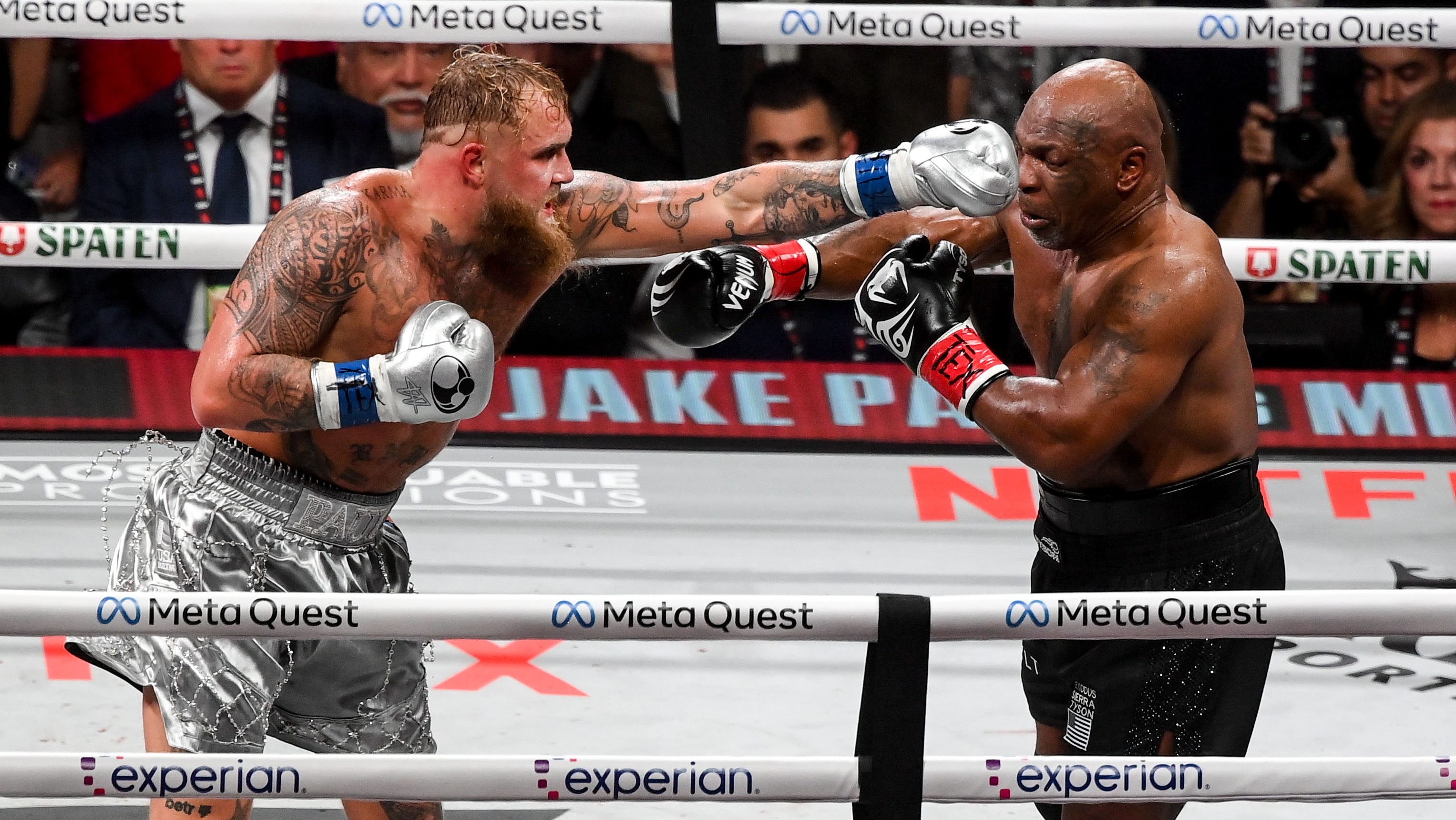New footage surfaced this week featuring Australian b-girl Raygun dancing in the Olympic village with some of her fellow athletes -- and it has some questioning her competitive performance that has dominated headlines.
The footage, posted by Olympic rower and fellow Team Australia athlete Jean Mitchell on TikTok, appears to show athletes in a dance circle, with Raygun jumping into the center.
The caption called Rachael Gunn, who has been the target of both praise and criticism following her performance during the debut of the sport breaking in Paris, a "QUEEEEEN."
Footage showed Gunn performing a series of moves that, similar to her performance during the competition, sparked mixed reactions.
Get top local stories in Southern California delivered to you every morning. Sign up for NBC LA's News Headlines newsletter.
Some questioned, "Why didn't she do this in the routine?" and "Why was this better than the comp?"
Many praised the moves and Gunn.
Paris 2024 Summer Olympics and Paralympics
Watch all the action from the Paris Olympic and Paralympic Games live on Peacock
"Iconic. No notes," one person wrote.
"Her confidence is inspiring," another user said.
Others, however, said the moves proved earlier criticism of her skillset on the global stage.
"When you get medals for participating," one commenter wrote.
"Is like watching a kid show you what they can do," another said.
The video comes amid a fan petition questioning Gunn's Olympic eligibility. The petition, which lists a number of unverified claims, calls for a public apology from Gunn and an investigation into her ascent to the Games, among other things. As of Wednesday, the petition had more than 35,000 signatures.
Gunn, who went viral for using moves like a “kangaroo dance” while scoring zero points in her Olympic performance, has addressed criticism over her breaking dance moves at the 2024 Games already.
Speaking to ESPN, she said she knew she was an "underdog" and acknowledged her unique style was intentional.
"What I wanted to do was come out here and do something new and different and creative - that's my strength, my creativity," Gunn said. "I was never going to beat these girls on what they do best, the dynamic and the power moves, so I wanted to move differently, be artistic and creative because how many chances do you get that in a lifetime to do that on an international stage."
The Aussie dancer said she wanted to "make my mark in a different way."
And Gunn isn't the only one defending her dancing -- so is the breaking community.
In a show of support on Sunday, the head judge of the breaking competition said the 36-year-old university professor was just trying to be original. And the breaking federation says it has offered mental health support in the wake of online criticism.
“Breaking is all about originality and bringing something new to the table and representing your country or region,” head judge Martin Gilian — known as MGbility — said at a press conference. “This is exactly what Raygun was doing. She got inspired by her surroundings, which in this case, for example, was a kangaroo.”
The breaking and hip-hop communities “definitely stand behind her,” he added.
“We have five criteria in the competitive judging system and just her level was maybe not as high as the other competitors," MGbility said. “But again, that doesn’t mean that she did really bad. She did her best. She won the Oceania qualifier. ... Unfortunately for her, the other b-girls were better.”
Her fellow Aussie break dancer, Jeff Dunne, who goes by J Attack, also expressed support for Gunn.
"All I know is she represented hard," the 16-year-old told the Herald Sun, "she has been the leading breaker in Australia for the women and I acknowledge her and respect her 100 percent.”
Meanwhile, other break dancers, like Leah Clark, had mixed emotions.
“I have been a friend of Rachael and have competed against her for many years. I was so proud to watch her walk out. (But) the performance… I was a little shocked at what I saw to be totally honest,” Clark told the Australian Broadcast Corporations "Hack", in part. “Rachael does have a quirky style and a unique character. To be honest on a personal level, I was a bit disappointed. Some of those choices weren’t the best for the Olympic stage ... there were some questionable decisions made on her behalf. I praise her for being her authentic self. There is a huge amount of talent in Australia. But Rachael deserved to be there because she won the championships."
Clark added that she's worried for Gunn when it comes to the online backlash she's received -- and the comments other b-girls are getting on social media in the wake of the performance.
“The competitive girls have mixed emotions. We deeply care for Rachael and we’re worried about her and the amount of bullying she’s getting. Nobody deserves that. We hope she’s ok," she said. “On the other side, we’re kind of like, ‘What happened there?’"
Sergey Nifontov, general secretary of the World DanceSport Federation, said they've been in direct contact with Gunn and Australian Olympic team officials
“We offered (the) support of our safe-guarding officer. We are aware about what has happened, especially on social media, and definitely we should put the safety of the athlete, in this case, mental safety in first place,” he said. “She has us as a federation supporting her.”
Breaking — known to many break dancing, a term its performers dislike — is not on the program for the Los Angeles Olympics in 2028.
The next Summer Games after that will be in Brisbane, Australia.
“We believe that this has nothing to do with our chances for Brisbane 2032,” Nifontov said when asked about the criticism of Raygun and getting back into the Olympics.
Japan's Ami Yuasa, known better as b-girl Ami, won the gold medal and said she wished Los Angeles organizers had waited to experience the energy between the athletes and the crowd at Place de la Concorde.
“I feel so sad about it not happening in Los Angeles, because breaking was born in the USA,” she said Sunday. "Breaking is not just a sport, it’s also expressing myself and art.”
Federation president Shawn Tay defended the evolution — from what started as an art form in the 1970s in the Bronx to an Olympic appearance. Critics have questioned the commercialization of the sport.
“Right from the beginning we were warned that some of the breakers — the top breakers — may not take part,” he said. “But now we have achieved to bring them all in — we have all the best breakers. Now they are fighting for the glory of their country — it’s a totally different thing. And that's actually pushed them to improve so much, to work so hard in a more scientific way.”
Asked about her thoughts on the debate over the sport, Gunn said breaking is "really bringing a new level of excitement" to the Olympics.
"What is an Olympic sport? It's so broad here ...what are the similarities between dressage and artistic swimming and the 100m sprint and the pentathlon," she said. "Breaking is clearly athletic and it clearly requires a whole level of dedication across a number of different aspects so I feel like it meets that criteria."
Gunn represented her country in 2021, 2022 and 2023 at the World Breaking Championships.
The 36-year-old is also a lecturer at Sydney's Macquarie University with a Ph.D in cultural studies. Her LinkedIn page notes she is “interested in the cultural politics of breaking."
Gunn took part in a variety of dance styles, like ballet and tap, at a young age, but didn't start breaking until her 20s, when she was introduced to it by her then-boyfriend, who is now her husband and coach.




